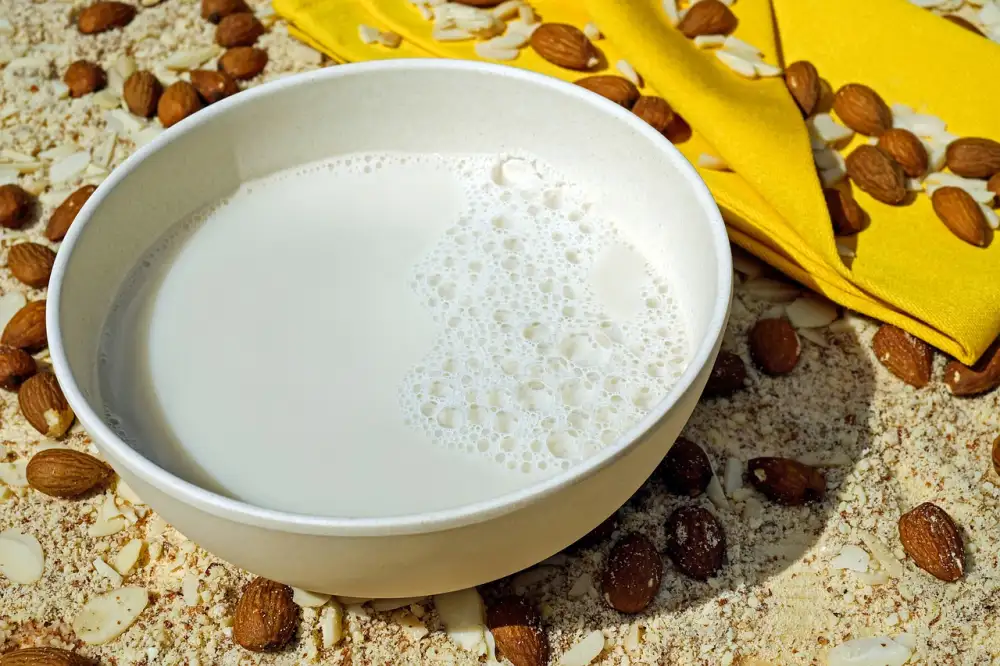Decoding the Shelf Life of Almond Milk: Unveiling Spoilage Signs for Optimal Health

Almond milk has gained popularity as a dairy-free alternative, loved for its creamy texture and nutty flavor. But like any other perishable product, almond milk has a limited shelf life. Understanding how long it stays fresh and safe to consume is crucial for maintaining optimal health. In this article, we will delve into the factors that affect the shelf life of almond milk, signs of spoilage to watch out for, and proper storage tips to extend its lifespan. So let's unravel the mysteries behind the shelf life of almond milk and ensure we enjoy every sip of this delectable beverage.
Understanding the Expiration Date
When it comes to almond milk, understanding the expiration date is crucial for ensuring its freshness and safety. The expiration date is a guide provided by manufacturers to indicate the period during which the product is at its peak quality. It is important to note that this date refers to unopened almond milk.
Typically, almond milk has a shelf life of around 7-10 days past the printed expiration date when refrigerated properly. However, it is essential to use your senses and evaluate the product's condition before consuming it, even if it is within the recommended timeframe.
Remember that the expiration date serves as a general guideline, and factors such as storage conditions and handling can affect the actual lifespan of almond milk. To ensure optimal health benefits and taste, it's best to consume almond milk before or shortly after its expiration date.
Signs of Spoilage in Almond Milk
As with any perishable food item, almond milk can also spoil if not stored and handled properly. It is important to be aware of the signs of spoilage to ensure that you are consuming fresh and safe almond milk.
One of the first signs of spoilage in almond milk is a sour or off smell. If your almond milk smells rancid or has an unpleasant odor, it is best to discard it. Similarly, if you notice any visible mold growth or clumps forming in the liquid, it is a clear indication that the almond milk has gone bad.
Another sign of spoilage is a change in texture. Fresh almond milk should have a smooth and creamy consistency. If you notice any separation or curdling, it is likely that the almond milk has started to spoil.
Additionally, taste can also be an indicator of spoilage. If your almond milk tastes sour or has a strange flavor, it is best to err on the side of caution and throw it away.
It's important to note that these signs may vary depending on whether your almond milk is homemade or store-bought. Store-bought almond milk often comes with an expiration date printed on the packaging, which can serve as a helpful guide for determining its freshness.
By being vigilant and paying attention to these signs of spoilage, you can ensure that you are consuming fresh and safe almond milk for optimal health benefits.
Factors Affecting the Shelf Life of Almond Milk
Several factors can affect the shelf life of almond milk. One crucial factor is the packaging. Almond milk that comes in aseptic packaging has a longer shelf life compared to those in cartons or bottles. The airtight packaging helps prevent contamination and keeps the milk fresh for a more extended period.
Another significant factor is temperature. Almond milk should be stored in a cool and dry place away from direct sunlight and heat sources. Exposure to high temperatures can cause the milk to spoil quickly.
The quality of ingredients used also plays a role in determining the shelf life of almond milk. Fresh, high-quality almonds and other ingredients will result in a longer-lasting product.
Additionally, how the almond milk is processed affects its shelf life. Proper pasteurization and sterilization techniques help eliminate bacteria and extend the lifespan of the product.
Lastly, cross-contamination can also impact the shelf life of almond milk. It is essential to ensure that utensils, containers, and surfaces used for handling almond milk are clean and free from any contaminants.
By considering these factors, you can maximize the shelf life of your almond milk and enjoy it at its freshest for optimal health benefits.
Proper Storage Tips for Extending the Lifespan
Proper storage is key to extending the lifespan of almond milk and ensuring its freshness. Here are some essential tips to keep in mind:
1. Refrigeration: Almond milk should always be stored in the refrigerator, even before opening. The cold temperature helps slow down the growth of bacteria and preserves its quality.
2. Sealed Container: Once opened, transfer the almond milk into a sealed container or bottle. This prevents exposure to air and potential contaminants, maintaining its flavor and texture.
3. Avoid Cross-Contamination: Make sure to use clean utensils when handling almond milk to prevent introducing any bacteria or other contaminants.
4. Use-by Date: Pay close attention to the use-by date on the packaging and consume it within that timeframe for optimal taste and safety.
5. Avoid Temperature Fluctuations: Keep almond milk away from areas with temperature fluctuations, such as near stoves or windowsills. These changes in temperature can accelerate spoilage.
6. Shake Well Before Use: Before pouring almond milk, give it a good shake to ensure that any settled particles are evenly distributed.
By following these storage tips, you can maximize the shelf life of your almond milk and enjoy it at its freshest for a longer period of time while maintaining optimal health benefits.
In conclusion, understanding the shelf life of almond milk is crucial for ensuring its freshness and safety. By paying attention to the expiration date and being aware of the signs of spoilage, consumers can make informed decisions about consuming almond milk. Factors such as temperature, exposure to light, and proper storage techniques also play a significant role in extending the lifespan of almond milk.
By following simple storage tips like refrigerating almond milk promptly after opening, keeping it away from direct sunlight, and using clean utensils to handle it, individuals can enjoy fresh and safe almond milk for a longer period. It is essential to remember that consuming spoiled almond milk can lead to health issues, so it is best to err on the side of caution.
Next time you reach for a carton of almond milk, take a moment to check its expiration date and inspect it for any signs of spoilage. By doing so, you can ensure that you are enjoying a delicious and nutritious beverage that contributes positively to your overall health and well-being. Cheers to experiencing culinary bliss with our food treasures!
Published: 03. 01. 2024
Category: Food



